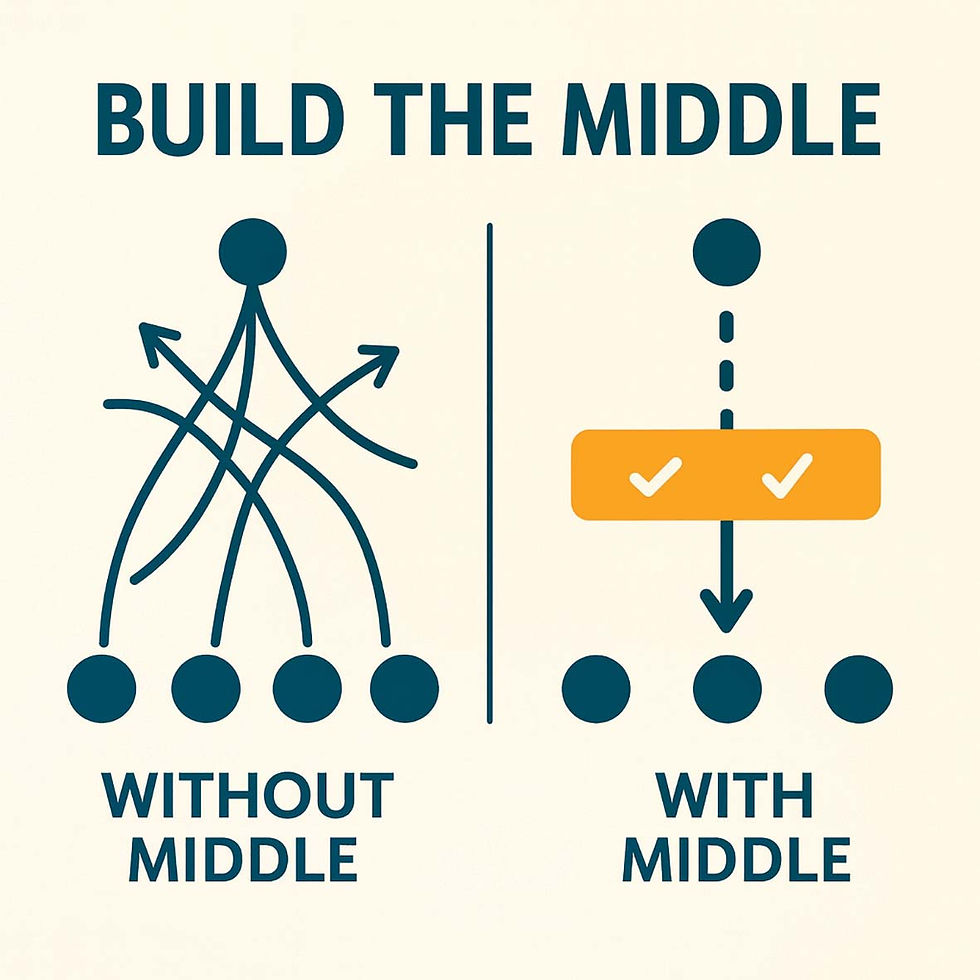Authority Fades, Brand Stays
- Divyaa Advaani

- 3 days ago
- 3 min read

We’ve all seen it happen. In boardrooms, over Zoom calls, or during routine discussions—someone raises a concern. It’s genuine, valid, even necessary to the progress of the project. But instead of being heard, they’re met with rolled eyes, a dismissive tone, or the infamous “let’s move on” response. Sometimes, the one shutting them down is not even addressing the issue—it’s their irritation, impatience, or misplaced authority speaking louder than logic.
Now imagine this moment doesn’t happen behind closed doors. Instead, it happens live on a Zoom call with multiple team members, peers, and even clients present. The entire room witnesses the eye-roll, the sigh, the sharp tone. For the one at the receiving end, it’s more than just a dismissal—it’s a public belittling.
But here’s where the bigger picture comes in: for the leader, the founder, or the senior professional doing the dismissing, this isn’t just a “bad mood” moment. This is a personal branding moment. One that leaves a lasting impression on every single person watching.
Because personal branding is not about logos, LinkedIn posts, or polished PR alone—it’s about how you show up, especially in the unplanned, unscripted moments.
When you roll your eyes at a colleague, the brand you’re silently building for yourself is one of arrogance, impatience, and disregard for collaboration. When you dismiss a concern prematurely, your brand message to the room becomes: “Hierarchy matters more than listening.” Even if you later realize the concern was valid and address it, the damage is already done. People rarely remember the solution as vividly as they remember how they were made to feel.
This matters even more for business owners and senior leaders. Every interaction you have—whether with a client, a colleague, or a team member—is shaping the narrative of your leadership. And in today’s world, where employees, clients, and stakeholders are highly observant and quick to form opinions, the smallest actions ripple outward into reputation.
Let’s be honest—frustration is human. We all have off days. But leadership demands self-awareness. Personal branding demands responsibility. Rolling your eyes might feel like a small act of release, but in that moment, you’re unknowingly teaching your team that belittling is acceptable, that irritation is more important than empathy. This isn’t just about etiquette—it’s about the culture you’re cultivating.
Here’s the deeper truth: the most powerful leaders are those who can hold space for ideas, even when they seem inconvenient at first. They listen with curiosity instead of irritation. They recognize that every genuine concern is an opportunity to either solve a problem or strengthen trust. And in doing so, they create a brand that speaks of maturity, composure, and respect.
Think about the personal brands that inspire you—whether it’s a global leader, a visionary entrepreneur, or even someone within your own circle. Chances are, you admire not just their achievements but also how they handle people. Their calm in the face of chaos, their ability to listen without judgment, their willingness to make others feel valued—these are traits that transform reputations from competent to unforgettable.
So, the next time you find yourself on the edge of irritation in a meeting, pause. Ask yourself: What personal brand am I creating in this moment? Is it the brand of someone who builds others up, or someone who makes them feel small? Is it the brand of a leader who listens, or one who reacts?
Because every raised eyebrow, every sigh, every sharp tone isn’t just a fleeting moment—it’s a permanent addition to your personal brand.
And in business, personal brand is currency. It determines who trusts you, who wants to work with you, and ultimately, who chooses you over others.
The choice is always yours. Do you want to be remembered as the leader who silenced voices, or the one who amplified them?
Your position or authority may make people follow your instructions—but it is your personal brand that makes them respect, admire, and willingly champion you. The question is: are people obeying you… or are they truly influenced by you? If you want to ensure it’s the latter, it’s time to work on building the brand called YOU.
Let’s get in touch and see how! Book a free consultation call with me https://sprect.com/pro/divyaaadvaani
(The author is a personal branding expert. She has clients from 14+ countries. Views personal.)




Comments